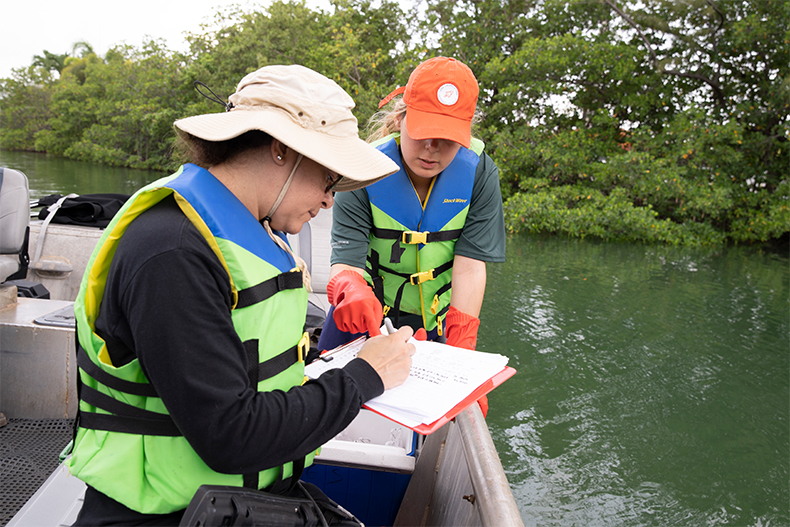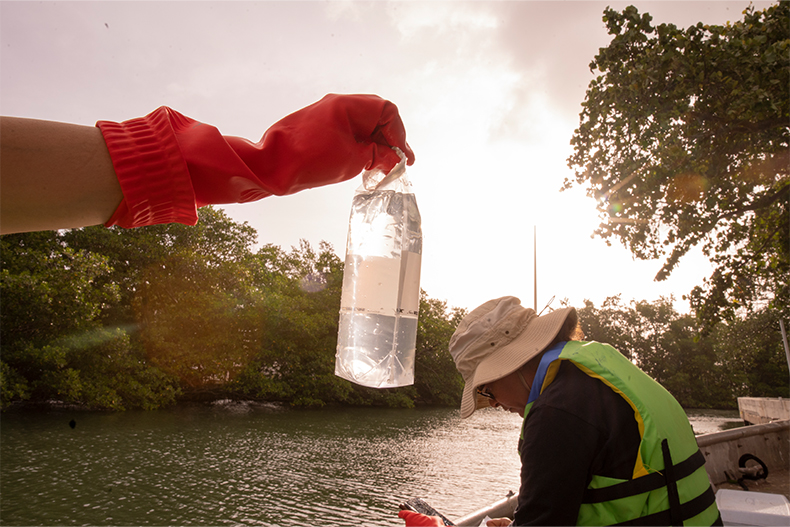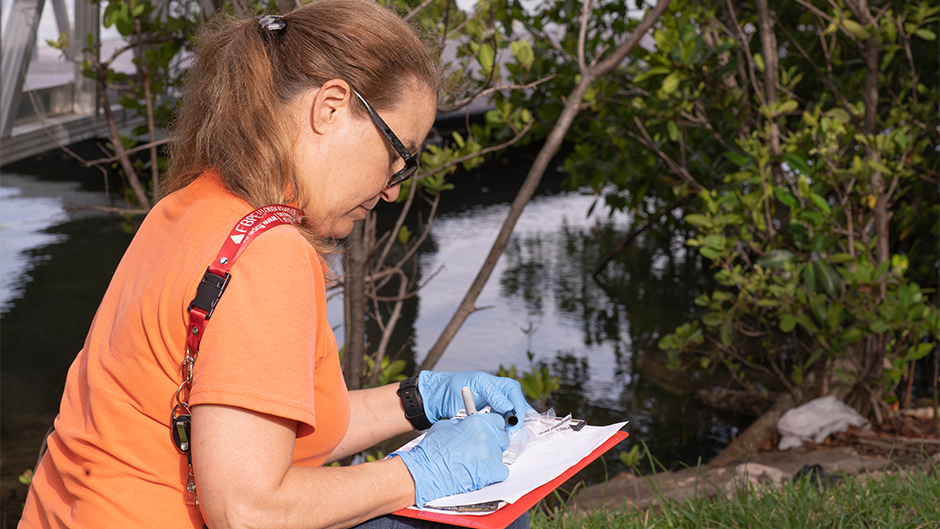To get to the bottom of what’s plaguing the Parkview Island canal, the City of Miami Beach has hired Miami Engineering’s Helena Solo-Gabriele, professor in the Department of Chemical, Environmental, and Materials Engineering.
“The goal is to find out what’s causing the pollution. Looking for sources of fecal bacteria in waterways and understanding where they come from–I’ve been doing this kind of research for decades,” Solo-Gabriele said.
Residents have been blocked from using a kayak launch on the canal since 2020 due to unsafe levels of fecal bacteria.
After Solo-Gabriele completed a project for the Village of Key Biscayne, discovering that shoreside seaweed accumulation caused local water contamination, she was approached by the City of Miami Beach to look into the Parkview Island canal.

The team brought together by Solo-Gabriele to analyze the City’s data and launch an intensive water sampling project includes research associate Larissa Montas Bravo and three undergraduate engineering students, giving them the opportunity to apply what they’ve learned in class and make a difference locally.
The team began its water sampling on Tuesday, Aug. 9, and will set out on the water regularly for the next three months.
“Onboard a boat, we systematically collected 50 water samples along Parkview Island,” Montas Bravo said. “Collecting a high number of samples in a short period of time allows us to develop a ‘snapshot’ of the bacteria distribution within the waterways. This can be used to pinpoint the locations of possible sources and understand bacteria levels in adjoining waterways.”
“Working on the Miami Beach project helps me apply what I learn in the classroom to the real world,” said Rivka Reiner, undergraduate student in the Department of Chemical, Environmental, and Materials Engineering. “It’s a privilege to be able to help improve water quality and give back to the community I grew up in.”

“As a member of the South Florida community,” Montas Bravo added, “I feel that we are all connected by the water–wherever we live. I feel honored to be conducting research in a project that directly impacts local water quality.”
“Miami Beach has been incredible in terms of monitoring water quality,” Solo-Gabriele said. “They have done a phenomenal job setting up rain stations and tidal stations, collecting lots of data and sponsoring multiple studies. This comprehensive research helps my team hit the ground running.”
Solo-Gabriele looks forward to applying her decades of experience in water quality and providing answers to the City this fall.

